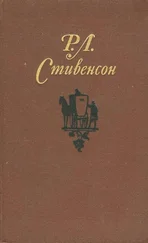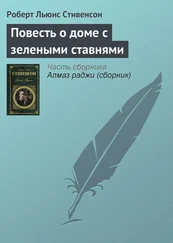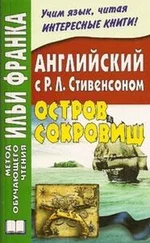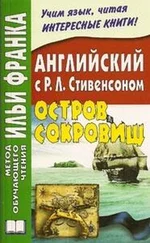Роберт Стивенсон - Records of a Family of Engineers
Здесь есть возможность читать онлайн «Роберт Стивенсон - Records of a Family of Engineers» — ознакомительный отрывок электронной книги совершенно бесплатно, а после прочтения отрывка купить полную версию. В некоторых случаях можно слушать аудио, скачать через торрент в формате fb2 и присутствует краткое содержание. Жанр: literature_19, foreign_antique, foreign_prose, Биографии и Мемуары, на английском языке. Описание произведения, (предисловие) а так же отзывы посетителей доступны на портале библиотеки ЛибКат.
- Название:Records of a Family of Engineers
- Автор:
- Жанр:
- Год:неизвестен
- ISBN:нет данных
- Рейтинг книги:3 / 5. Голосов: 1
-
Избранное:Добавить в избранное
- Отзывы:
-
Ваша оценка:
- 60
- 1
- 2
- 3
- 4
- 5
Records of a Family of Engineers: краткое содержание, описание и аннотация
Предлагаем к чтению аннотацию, описание, краткое содержание или предисловие (зависит от того, что написал сам автор книги «Records of a Family of Engineers»). Если вы не нашли необходимую информацию о книге — напишите в комментариях, мы постараемся отыскать её.
Records of a Family of Engineers — читать онлайн ознакомительный отрывок
Ниже представлен текст книги, разбитый по страницам. Система сохранения места последней прочитанной страницы, позволяет с удобством читать онлайн бесплатно книгу «Records of a Family of Engineers», без необходимости каждый раз заново искать на чём Вы остановились. Поставьте закладку, и сможете в любой момент перейти на страницу, на которой закончили чтение.
Интервал:
Закладка:
‘To-day we had prayers on deck as usual when at sea. I read the 14th chapter, I think, of Job. Captain Wemyss has been in the habit of doing this on board his own ship, agreeably to the Articles of War. Our passage round the Cape [Cape Wrath] was rather a cross one, and as the wind was northerly, we had a pretty heavy sea, but upon the whole have made a good passage, leaving many vessels behind us in Orkney. I am quite well, my dear; and Captain Wemyss, who has much spirit, and who is much given to observation, and a perfect enthusiast in his profession, enlivens the voyage greatly. Let me entreat you to move about much, and take a walk with the boys to Leith. I think they have still many places to see there, and I wish you would indulge them in this respect. Mr. Scales is the best person I know for showing them the sailcloth-weaving, etc., and he would have great pleasure in undertaking this. My dear, I trust soon to be with you, and that through the goodness of God we shall meet all well.’
‘There are two vessels lying here with emigrants for America, each with eighty people on board, at all ages, from a few days to upwards of sixty! Their prospects must be very forlorn to go with a slender purse for distant and unknown countries.’
‘ Lighthouse Yacht , off Greenock , Aug. 18 th .‘It was after church-time before we got here, but we had prayers upon deck on the way up the Clyde. This has, upon the whole, been a very good voyage, and Captain Wemyss, who enjoys it much, has been an excellent companion; we met with pleasure, and shall part with regret.’
Strange that, after his long experience, my grandfather should have learned so little of the attitude and even the dialect of the spiritually-minded; that after forty-four years in a most religious circle, he could drop without sense of incongruity from a period of accepted phrases to ‘trust his wife was getting up her spirits ,’ or think to reassure her as to the character of Captain Wemyss by mentioning that he had read prayers on the deck of his frigate ‘ agreeably to the Articles of War ’! Yet there is no doubt – and it is one of the most agreeable features of the kindly series – that he was doing his best to please, and there is little doubt that he succeeded. Almost all my grandfather’s private letters have been destroyed. This correspondence has not only been preserved entire, but stitched up in the same covers with the works of the godly women, the Reverend John Campbell, and the painful Mrs. Ogle. I did not think to mention the good dame, but she comes in usefully as an example. Amongst the treasures of the ladies of my family, her letters have been honoured with a volume to themselves. I read about a half of them myself; then handed over the task to one of stauncher resolution, with orders to communicate any fact that should be found to illuminate these pages. Not one was found; it was her only art to communicate by post second-rate sermons at second-hand; and such, I take it, was the correspondence in which my grandmother delighted. If I am right, that of Robert Stevenson, with his quaint smack of the contemporary ‘Sandford and Merton,’ his interest in the whole page of experience, his perpetual quest, and fine scent of all that seems romantic to a boy, his needless pomp of language, his excellent good sense, his unfeigned, unstained, unwearied human kindliness, would seem to her, in a comparison, dry and trivial and worldly. And if these letters were by an exception cherished and preserved, it would be for one or both of two reasons – because they dealt with and were bitter-sweet reminders of a time of sorrow; or because she was pleased, perhaps touched, by the writer’s guileless efforts to seem spiritually-minded.
After this date there were two more births and two more deaths, so that the number of the family remained unchanged; in all five children survived to reach maturity and to outlive their parents.
CHAPTER II: THE SERVICE OF THE NORTHERN LIGHTS
I
It were hard to imagine a contrast more sharply defined than that between the lives of the men and women of this family: the one so chambered, so centred in the affections and the sensibilities; the other so active, healthy, and expeditious. From May to November, Thomas Smith and Robert Stevenson were on the mail, in the saddle, or at sea; and my grandfather, in particular, seems to have been possessed with a demon of activity in travel. In 1802, by direction of the Northern Lighthouse Board, he had visited the coast of England from St. Bees, in Cumberland, and round by the Scilly Islands to some place undecipherable by me; in all a distance of 2500 miles. In 1806 I find him starting ‘on a tour round the south coast of England, from the Humber to the Severn.’ Peace was not long declared ere he found means to visit Holland, where he was in time to see, in the navy-yard at Helvoetsluys, ‘about twenty of Bonaparte’s English flotilla lying in a state of decay, the object of curiosity to Englishmen.’ By 1834 he seems to have been acquainted with the coast of France from Dieppe to Bordeaux; and a main part of his duty as Engineer to the Board of Northern Lights was one round of dangerous and laborious travel.
In 1786, when Thomas Smith first received the appointment, the extended and formidable coast of Scotland was lighted at a single point – the Isle of May, in the jaws of the Firth of Forth, where, on a tower already a hundred and fifty years old, an open coal-fire blazed in an iron chauffer. The whole archipelago, thus nightly plunged in darkness, was shunned by sea-going vessels, and the favourite courses were north about Shetland and west about St. Kilda. When the Board met, four new lights formed the extent of their intentions – Kinnaird Head, in Aberdeenshire, at the eastern elbow of the coast; North Ronaldsay, in Orkney, to keep the north and guide ships passing to the south’ard of Shetland; Island Glass, on Harris, to mark the inner shore of the Hebrides and illuminate the navigation of the Minch; and the Mull of Kintyre. These works were to be attempted against obstacles, material and financial, that might have staggered the most bold. Smith had no ship at his command till 1791; the roads in those outlandish quarters where his business lay were scarce passable when they existed, and the tower on the Mull of Kintyre stood eleven months unlighted while the apparatus toiled and foundered by the way among rocks and mosses. Not only had towers to be built and apparatus transplanted; the supply of oil must be maintained, and the men fed, in the same inaccessible and distant scenes; a whole service, with its routine and hierarchy, had to be called out of nothing; and a new trade (that of lightkeeper) to be taught, recruited, and organised. The funds of the Board were at the first laughably inadequate. They embarked on their career on a loan of twelve hundred pounds, and their income in 1789, after relief by a fresh Act of Parliament, amounted to less than three hundred. It must be supposed that the thoughts of Thomas Smith, in these early years, were sometimes coloured with despair; and since he built and lighted one tower after another, and created and bequeathed to his successors the elements of an excellent administration, it may be conceded that he was not after all an unfortunate choice for a first engineer.
War added fresh complications. In 1794 Smith came ‘very near to be taken’ by a French squadron. In 1813 Robert Stevenson was cruising about the neighbourhood of Cape Wrath in the immediate fear of Commodore Rogers. The men, and especially the sailors, of the lighthouse service must be protected by a medal and ticket from the brutal activity of the press-gang. And the zeal of volunteer patriots was at times embarrassing.
Читать дальшеИнтервал:
Закладка:
Похожие книги на «Records of a Family of Engineers»
Представляем Вашему вниманию похожие книги на «Records of a Family of Engineers» списком для выбора. Мы отобрали схожую по названию и смыслу литературу в надежде предоставить читателям больше вариантов отыскать новые, интересные, ещё непрочитанные произведения.
Обсуждение, отзывы о книге «Records of a Family of Engineers» и просто собственные мнения читателей. Оставьте ваши комментарии, напишите, что Вы думаете о произведении, его смысле или главных героях. Укажите что конкретно понравилось, а что нет, и почему Вы так считаете.







